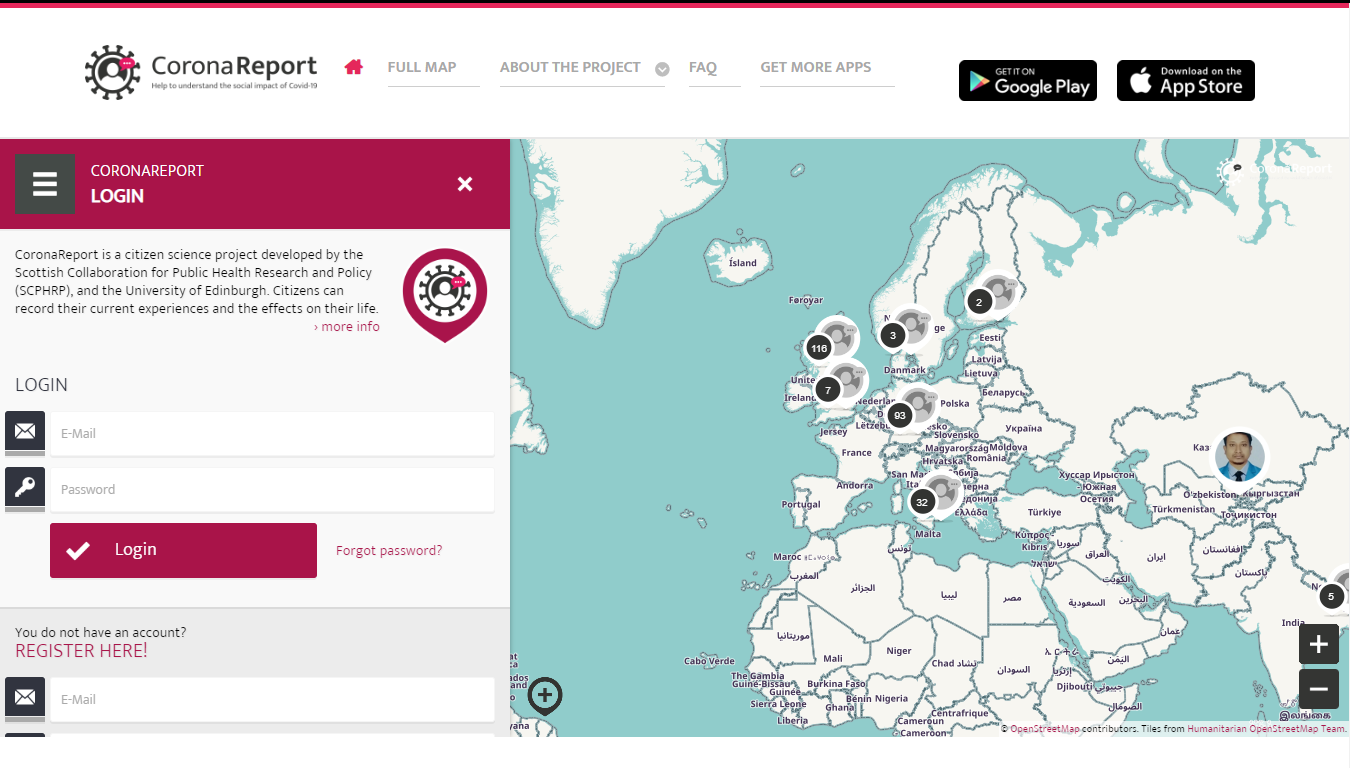
Citizen science is a dialogue that should take place in public-oriented spaces
Lucie Steigleder
July 24, 2020, 4:10 p.m.
Jessica Hafetz Mirman from the University of Edinburgh worked on the elaboration of a Citizen Science app during the lockdown period.
Who initiated the CoronaReport project and how did the idea come about?
The idea came about organically as an authentic response to the emerging COVID-19 crisis. Our team (composed of Ruth Jepson, Stephanie Adams and myself, Jessica Hafetz Mirman from the University of Edinburgh) had already been collaborating with Spotteron in the past, so we knew their capacity to rapidly develop citizen science mobile apps. We collectively recognized that there was a unique opportunity to focus specifically on the social and behavioural aspects of the crisis. The project received seed funding from Rapid Response Impact Grant, College of Arts, Humanities and Social Sciences, University of Edinburgh.
Can you tell us more about how this app works? What is the purpose?
The app is designed to capture a ‘moment in time’. Participants can use it as a digital diary, by uploading a picture and describing their current mood. We want people to share how their lives has been impacted by COVID-19.
What stands out to us about this particular citizen science project is that while it is grounded in the core citizen science practices and principles of co-production, it pushes the citizen science field forward by forging new disciplinary connections among psychology, sociology and public health.
During this period, research was saturated by studies
on the medical effects of the pandemic
During this period, research was saturated by studies on the medical effects of the pandemic, but this is not the only type of impact. Social and psychological repercussions can happen whether or not someone becomes ill with the disease since everyone has had to experience the social-distancing measures. Considering the situation, the inputs were initially about negative feelings, such as stress or sadness, but we also wanted to welcome positive contributions, like moments of happiness or curiosity.
How will the results be used?
The corona report app is a stand-alone data collection tool, whose results can be incorporated in other studies. In line with the core principles of citizen science, the results on the app itself are immediately published and available to the community of users, and the general public.
For example, Dr Stephanie Adams and I are leading a data-driven needs assessment study focused on resilience with people and families living in or near poverty in communities in Edinburgh. This project includes the CoronaReport app and also incorporates additional survey measures to evaluate how people are strategically adapting psychologically, behaviourally, and as networks of communities. We are seeing some stories of depression and loneliness, but we also get descriptions of adaptability, strength. Some communities found in this situation a sense of togetherness. The findings will be used to connect communities to collaboratively identify actions to inform future planning and community organizing..
But the data collected is also being used beyond our borders. Drs Samantha Rowbotham and Yvonne Laird are working with South West Sydney Local Health District to understand the extent to which social distancing restrictions impact physical activity levels, eating habits, smoking and overall well being. Similarly, participants will complete surveys in addition to using the CoronaReport app.
Which lessons do you draw from creating a whole project under these unusual circumstances?
In the core project itself, this experience has illustrated how people can be resourceful and creative, even in difficult times.
On a more meta level, we took this opportunity to reflect on the way we do citizen science in difficult times. We specifically asked ourselves how to preserve reliability and validity in our assessment measures.
Citizen science is a dialogue that should take place in public-oriented spaces,
spaces where citizens are comfortable to go to.
Citizen science is a dialogue that should take place in public-oriented spaces, spaces where citizens are comfortable to go to. As the true mission of the project is the co-creation of science with citizens, we should take an extra care in being inclusive in the kind of tools that are used. By conceiving a platform that is accessible and comprehensible to all, we can maximise their engagement and hopefully retain methodological rigour.